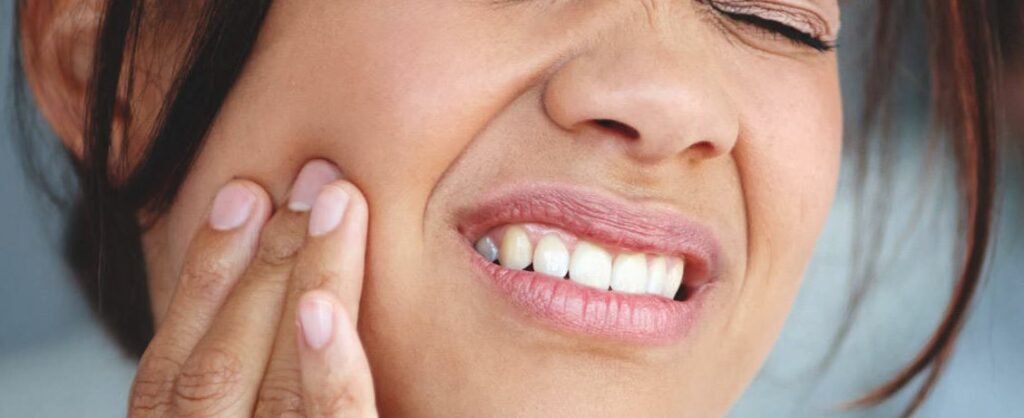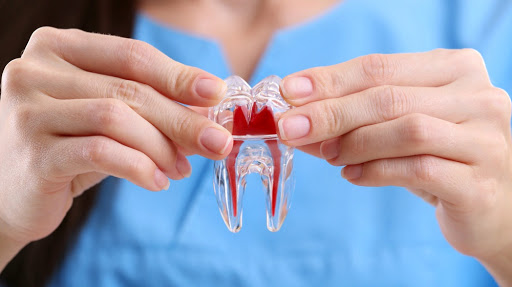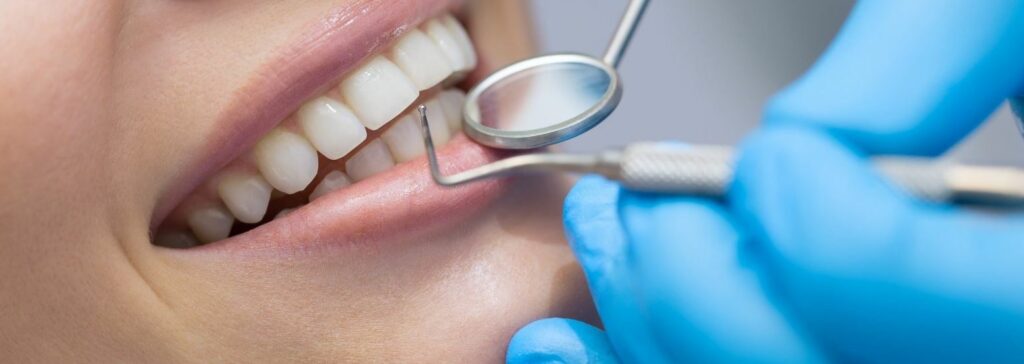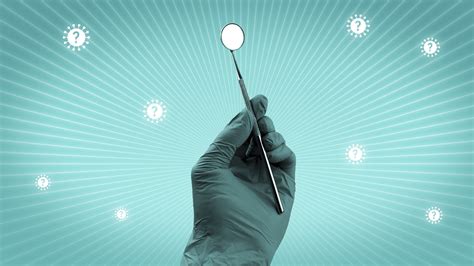
Toothaches, or any kind of ache really, are never fun to experience. take a look at some common dental emergencies and the importance of seeing your dentist if you may be experiencing any toothaches, oral pain or dental problems. Remember, if you’re overdue for a dental appointment, call us today to get that scheduled and stay on top of your oral health, which can help avoid some dental emergencies in the future.
Dental Emergencies: How Do I Tell It’s a Dental Emergency?
Recognizing a dental emergency is crucial for prompt treatment and prevention of further complications. Here are some key indicators to help you determine if your situation warrants immediate dental attention:
- Severe Pain: Intense or persistent toothache can indicate various dental issues, including infection, abscess, or dental trauma. If the pain is severe and does not subside with over-the-counter pain medication, it may signify a dental emergency.
- Trauma or Injury: Any trauma to the mouth, such as a knocked-out tooth, fractured tooth, or injury to the soft tissues, requires immediate evaluation by a dentist. Quick action can often save a tooth or prevent further damage.
- Swelling and Bleeding: Swelling of the gums, face, or jaw, accompanied by bleeding, could indicate an infection or abscess. These conditions require urgent dental care to prevent the spread of infection and alleviate pain.
- Loose or Lost Filling/Crown: If a dental filling or crown becomes loose or falls out, it exposes the underlying tooth structure to bacteria and decay. Prompt replacement by a dentist can prevent further damage and discomfort.
- Persistent Bad Breath or Taste: Chronic bad breath or a foul taste in the mouth, especially when accompanied by swelling or pain, may indicate an infection or other underlying dental issue requiring immediate attention.
- Difficulty Eating or Swallowing: Difficulty chewing or swallowing due to tooth pain, swelling, or other oral discomforts may signify a dental emergency. These symptoms can indicate a severe infection or abscess that requires immediate treatment.
- Sudden Sensitivity to Temperature: If you experience sudden and severe sensitivity to hot or cold temperatures, it could indicate nerve damage, decay, or infection, necessitating prompt dental evaluation and treatment.
- Jaw Pain or Limited Movement: Persistent jaw pain, difficulty opening or closing the mouth, or clicking or popping sounds when chewing may indicate temporomandibular joint (TMJ) disorder or other serious dental issues requiring professional assessment.
If you experience any of these symptoms, it’s essential to contact our office as soon as possible for guidance and appropriate treatment. Remember, timely intervention can prevent complications and promote optimal oral health and overall well-being.
Related Article: Experiencing Tooth Pain? When it’s Time to Visit the Dentist
The Most Common Causes of a Toothache Include:
- Dental Decay (Cavities): Tooth decay, also known as cavities or dental caries, is one of the primary causes of toothaches. When bacteria in the mouth produce acids that erode tooth enamel, it can lead to the formation of cavities, which expose the inner layers of the tooth and cause sensitivity and pain.
- Gum Disease: Gum disease, also known as periodontal disease, occurs when bacteria in plaque infect and inflame the gums, leading to symptoms such as swelling, redness, bleeding, and pain. Advanced gum disease can cause gum recession, tooth mobility, and toothaches due to exposed tooth roots.
- Tooth Fracture or Trauma: Trauma to the tooth, such as a fracture, chip, or crack, can expose the sensitive inner layers of the tooth, leading to pain and sensitivity, especially when chewing or biting down.
- Tooth Abscess: A tooth abscess is a bacterial infection that develops inside the tooth or in the surrounding gums. It typically causes severe, throbbing pain, swelling, and tenderness, and may be accompanied by fever and facial swelling.
- Infected Tooth Pulp: The tooth pulp, which contains nerves and blood vessels, can become infected due to untreated dental decay, trauma, or repeated dental procedures. This can lead to severe toothache, sensitivity to hot or cold, and swelling.
- Impacted Wisdom Teeth: Impacted wisdom teeth, which are unable to fully erupt through the gums due to lack of space or obstruction, can cause pain, swelling, and infection in the surrounding gums and jawbone.
- Dental Abscess: A dental abscess is a pus-filled sac caused by a bacterial infection. It can develop at the tip of the tooth root (periapical abscess) or in the surrounding gums (periodontal abscess), causing severe pain, swelling, and tenderness.
- Bruxism (Teeth Grinding): Chronic teeth grinding or clenching, known as bruxism, can cause tooth sensitivity, jaw pain, and toothaches due to excessive wear and tear on the teeth and strain on the jaw muscles.
- Sinus Infection: In some cases, a toothache may be referred pain from a sinus infection or inflammation of the sinuses, especially if the upper back teeth are affected.
It’s essential to see Dr. Skrobanek and his team promptly if you experience a toothache, as it may indicate an underlying dental problem that requires treatment to prevent further complications.
Related Article: Toothache Causes: My Tooth is Throbbing! What do I do?
Dental Emergencies: What to look for
When it comes to emergency dental appointments, people typically want to know several key pieces of information to ensure they receive prompt and effective care:
- Availability: Patients often want to know if the dental office offers emergency appointments and how quickly they can be seen, especially if they’re experiencing severe pain or trauma.
- Treatment Options: Individuals want to understand what types of dental emergencies warrant immediate attention and what treatment options may be available to address their specific issue.
- Cost and Insurance Coverage: Patients may inquire about the cost of emergency dental services and whether their insurance will cover the treatment. Clear information about fees and payment options helps alleviate financial concerns.
- Pain Management: People experiencing dental emergencies are often in pain and seek reassurance that the dentist can provide effective pain relief during the appointment.
- Aftercare Instructions: Patients want clear guidance on how to care for their dental issue after the emergency appointment, including any necessary follow-up care or medication instructions.
- Safety Protocols: Individuals want assurance that the dental office follows strict hygiene and safety protocols to minimize the risk of infection during their emergency visit.
- Dentist’s Qualifications and Experience: Patients want to know they’re in capable hands and may inquire about the dentist’s qualifications, experience, and expertise in handling dental emergencies.
- Appointment Process: Clear communication about how to schedule an emergency appointment, including hours of operation and contact information, is essential for patients seeking immediate care.
By addressing these concerns with our patients and providing clear, transparent information, our dental offices can effectively meet the needs of our current and new patients seeking emergency dental care. Let’s continue.
5 Most Common Dental Emergencies
- Broken Crown – If a dental crown falls off or completely breaks, it leaves your tooth very vulnerable. Schedule with us quickly to possibly avoid a root canal or extraction.
- Knocked-out Tooth/Teeth – If you’ve ever had a tooth knocked out, you know what a shock that can be. When you act quickly after a tooth has been knocked out, it’s possible that we may be able to reinsert your tooth. Pick up the tooth carefully, try not to touch the root, and gently rinse. Try to reinsert the tooth into the socket, but if you can’t, place in a small container of milk until you see your dentist.
- Unexplainable Toothache – If you have a sudden, out-of-the-blue toothache, it’s important to reach out quickly to discover the source of the pain. While over-the-counter pain meds and a cold compress can help temporarily, it’s good to get to the source of the pain sooner rather than later; your odds of a minor fix will be much greater the faster you see your dentist.
- Bleeding or Swollen Gums – Some minor bleeding or irritation here and there is usually just fine and not concerning. However, if your gums won’t stop bleeding and is accompanied with swelling, it can often mean there’s an underlying health or dental issue that needs to be addressed.
- Food or Object Lodged in Teeth – If an object piece or stubborn piece of food gets lodged, brushing and flossing won’t help. Get professional help quickly to remove the food/object and prevent any decay or irritation.
Related Article: Handling Dental Emergencies
GPS Dental Can Get You OUT of Pain!!
While dental emergencies can arise unexpectedly and demand immediate attention, it’s crucial to remember that prevention is often the best cure. By prioritizing routine dental visits and maintaining good oral hygiene practices, you can significantly reduce the risk of encountering dental emergencies in the first place. These regular check-ups not only help detect and address potential issues early on but also provide an opportunity for Dr. Skrobanek and his team to educate you on proper oral care techniques tailored to your specific needs. Remember, your oral health is a vital component of your overall well-being, so don’t wait for an emergency to seek dental care. Schedule your routine visits today and take proactive steps towards a healthier, happier smile.
Dr. Gary P. Skrobanek’s experienced and friendly team at GPS Dental offers affordable dental care for all ages in San Antonio, TX area. Our Brooks City Base dentist office is conveniently located and offers early morning appointment times Monday through Friday to meet your needs. At GPS Dental, we promote dental health awareness to our patients and provide most dental services, from family and general dentistry to dental implants, sleep apnea, TMJ / TMD Treatment, cosmetic dentistry and much more. We accept most dental insurance plans and offer affordable financial solutions for any budget. Call us at 210-633-3477 to make an appointment.












